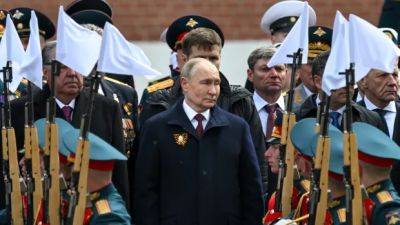Student encampments have the potential to strengthen US democracy
Three things are certain: antisemitism is on the rise; hatred of Muslims is increasing; and everyone – but especially those at universities with time to reflect – should be very, very troubled by this. Without taking account of the hate waves, it is impossible to understand why the seemingly mundane act of pitching a tent on campus has become so high stakes: is it announcing a desire to annihilate Israel, or is it a perfectly legitimate way to protest against particular US (and university) policies?
University administrations are not supposed to take a stance on the content of student activism, but many have declared encampments as such to be unsafe. If anything, though, student (and professor) safety seems to have been endangered by police brutally coming after peaceful protesters.
To be sure, today’s encampments are not hippie festivals; people might show up with guitars, but next to the guitar is a Hezbollah flag. To understand that camps do not pose a peril as such – and in fact can enable democratic action – we need to recall the 2010s: squares from Cairo’s Tahrir to Madrid’s Puerta del Sol saw encampments that were peaceful, self-policing and pluralistic; inside them, very different citizens could develop solidarity, but also engage each other across divisions.
Protesters coming together need to show what the sociologist Charles Tilly memorably called “WUNC”: worthiness, unity, numbers and commitment. These might be achieved with demonstrating, once described by Eric Hobsbawm as “next to sex, the activity combining bodily experience and intense emotion to the highest degree”. Encampments create further possibilities: they might foster community, and they mark a site where those with particular beliefs can be found and







